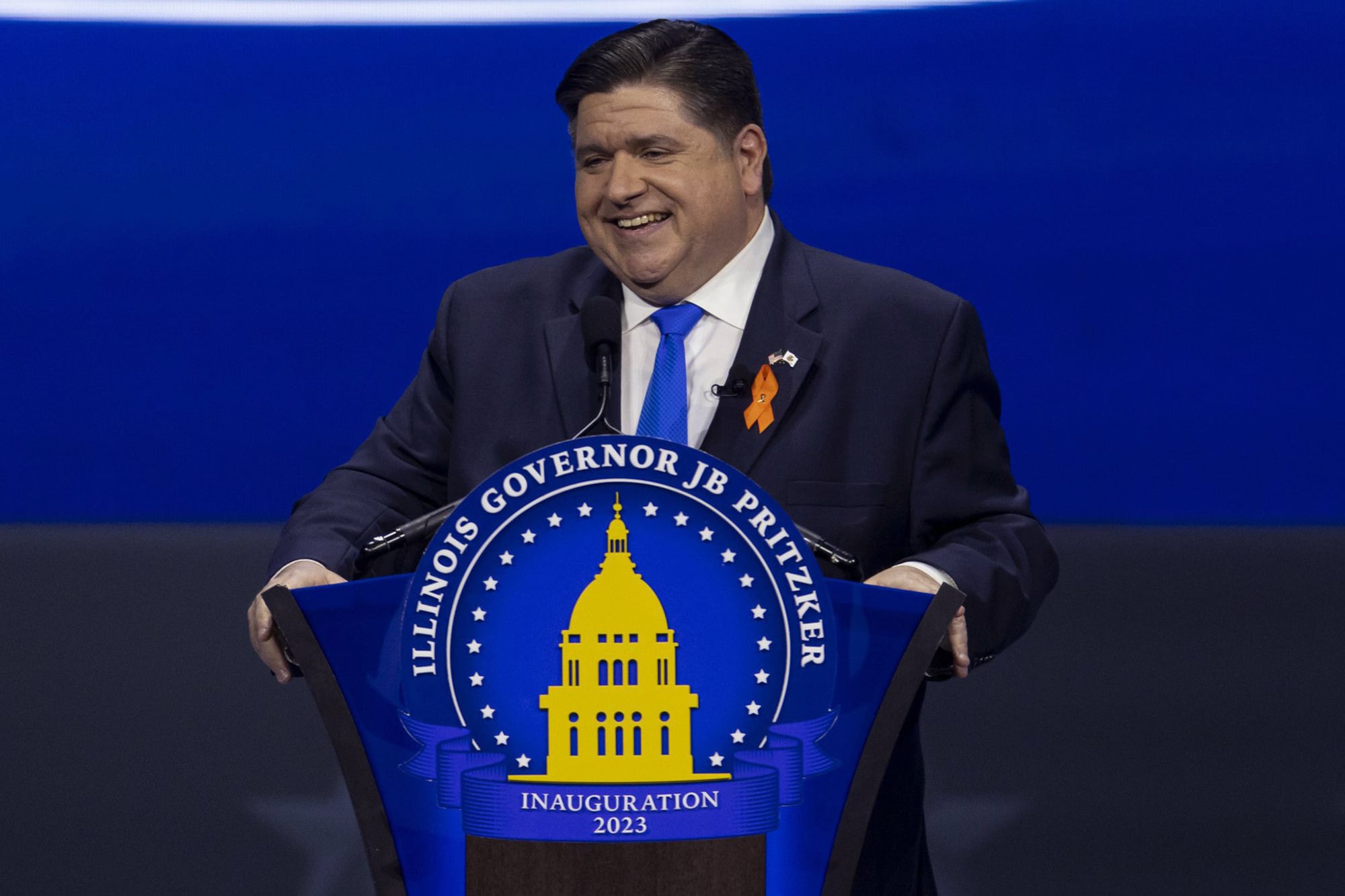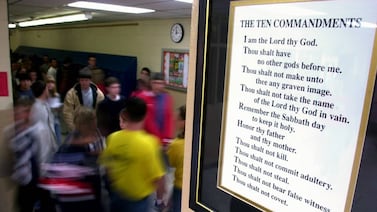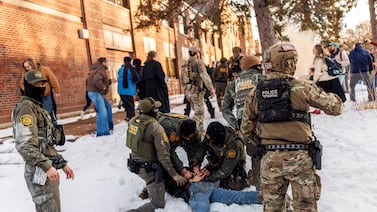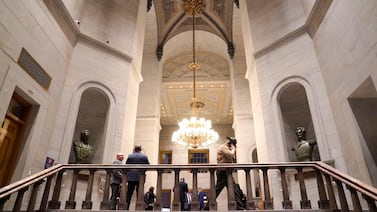Gov. J.B. Pritzker is pushing for another boost in early childhood funding that would keep the state on track to have universal preschool for 3- and 4- year-olds by 2027.
In his sixth budget address to state lawmakers, Pritzker laid out his $52.7 billion spending plan, which includes increasing funding for early childhood education by $150 million. The move would fuel the second year of his Smart Start Illinois initiative, which seeks to expand preschool across Illinois.
The investment in public preschool programs has already helped families like Heather Andrade, a Rochester parent whose child, Natalia, had speech delays, the governor said Wednesday. Pritzker noted that Natalia was able to get into a full-day preschool program with early intervention services, including speech therapy. Smart Start funding, he said, helped the program expand to full-day.
“Since Natalia’s first day in the program, her progress has been nothing short of remarkable. She can spell and write her name,” said Pritzker. “Natalia is on track to thrive when she enters kindergarten and her path ahead couldn’t be brighter.”
Pritzker’s proposals include $75 million for the state board’s early childhood education block grant to add 5,000 more seats for preschool students. Under the state Department of Human Services, Pritzker recommended an additional $5 million to home visiting programs and $36.5 million more for the child care assistance program that helps low-income families access child care services.
Pritzker has been a proponent of early childhood education before becoming governor. When he entered office in 2019, he promised to create universal preschool within four years. However, his plans were thrown off track by the coronavirus pandemic. After he was re-elected in 2022 for a second term in office, Pritzker moved to get universal preschool back on track with his Smart Start Illinois Initiative.
Smart Start Illinois, which is currently entering its second year, seeks to provide public preschool to 20,000 more 3- and 4-year olds throughout the state. The state allocated $250 million for early childhood education for the first year of the program and added 5,800 more preschool seats for Illinois children.
Pritzker announced in October that he wants to house early childhood education and child care programs under one department. He asked the state’s general assembly on Wednesday to provide $13 million for the creation of the department, which would bring together programs from the state Department of Human Services, the state Department of Child and Family services, and the State Board of Education.
K-12 education sees smaller increase this year
Pritzker also asked the general assembly to increase the state’s K-12 education budget by $450 million to a total of $10.8 billion for the Illinois State Board of Education.
Pritzker plans to increase funding for K-12 schools by $350 million, which will be distributed through the evidence-based funding formula — continuing the state’s bipartisan promise to increase funding by at least that much annually.
Illinois education advocates have been pushing for a $550 million increase to the evidence-based funding formula. Advocates argue a larger increase is needed in order to “adequately fund” schools by 2027, a date set by the state’s general assembly in 2017 when the funding formula passed.
Pritzker’s proposal also included an additional $45 million for the second year of the Teacher Vacancy Grant Pilot Programs.
The K-12 education budget proposal is less than the State Board of Education requested earlier this year. At its monthly meeting in January, the state board proposed a $653 million increase, for an overall budget of $11 billion, to the state’s education budget for fiscal year 2025. The request from State Superintendent Tony Sanders included a $350 million increase to public schools through the state’s evidence-based funding formula.
Across the state, school districts will likely be hit hard by a funding cliff as federal COVID relief funding dries up at the end of September. The state received over $7 billion in funding to help schools deal with the fallout from the coronavirus pandemic. Many schools spent money on facilities, salary, and benefits for school employees.
More scholarship funds to help students go to college
Pritzker’s proposal also includes more funding for the Illinois Student Assistance Commission’s Monetary Award Grant — a program to help support students from low-income families to attend college — by $10 million for a total of $711 million.
Pritzker also asked for an additional $8 million for the commission’s Minority Teachers of Illinois Scholarship, which provides scholarships to students of color and bilingual students who want to pursue a career in education.
State lawmakers will negotiate the budget until May, when the session is expected to end. Once approved, the new budget goes into effect on July 1.
Samantha Smylie is the state education reporter for Chalkbeat Chicago, covering school districts across the state, legislation, special education, and the state board of education. Contact Samantha at ssmylie@chalkbeat.org.






